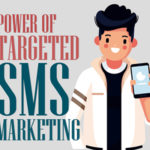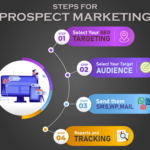With nearly every marketing operation now taking place online, it can be tough to distinguish between the various types of digital marketing people use today. Ecommerce marketing and digital marketing are not mutually exclusive. Ecommerce websites can use all of the above digital channels to promote a product and grow their business.
- What is ecommerce marketing?
Ecommerce marketing is the act of driving awareness and action toward a business that sells its product or service electronically. Ecommerce marketers can use social media, digital content, search engines, and email campaigns to attract visitors and facilitate purchases online. Before we dive into more detail about what ecommerce marketing is and how to implement a strategy of your own, let’s review the definition of ecommerce advertising and advertising’s parity with marketing for an ecommerce business.
- Types of Ecommerce Marketing
To give you a sense of what an ecommerce marketing strategy looks like, here are some common marketing channels and how you’d use them to build an online store.
- Social Media Marketing
- Content Marketing
- Optimize your product page copy.
- Write relevant blog posts.
- Create guest posts for external websites.
- Put product-related videos on YouTube.
- Include a keyword-driven FAQ section on your website.
- Search Engine Marketing
- Email Marketing
- Influencer Marketing
- Affiliate Marketing
- Local Marketing
- Ecommerce Marketing Tips
There are countless ecommerce marketing tactics that you can employ to drive visitors to your online store beyond the traditional methods that we reviewed above. Let’s get into some more creative ways you can market your ecommerce business.
- Use personalization.
- Capitalize on user-generated content (UGC).
- Build a loyalty program.
- Invest in live chat.
- Cater to the shopping cart.
- Implement a responsive website design.
- Ecommerce Marketing Strategy
Now that you know the ins and outs of ecommerce marketing, let’s put it all together and review some tips for building a successful marketing plan for your online store.
- Set goals based on industry benchmarks.
Depending on your industry, location, business size, and a multitude of other factors, there are some standards you can use to measure your goals against — those standards are industry benchmarks. Consider goals like website visits, click-through rates, conversion rates, and customer acquisition cost and compare those to other ecommerce business in your field.
- Break down your strategy into small tactics.
When building out a marketing plan for your online store, there are several paths you could follow — we listed many of them above. It can be tempting to chase after every single one, but that’s a sure way to not be effective at any of them. We recommend that you focus on a couple key strategies first that you believe will have the most ROI — and are the most accessible to you — and create action items for each.
- Delight your new and long-term customers.
Marketing doesn’t stop after a sale is made. Once someone becomes your customer, you should continue to engage, nurture, and delight them. This way, you’ll support your customers’ long-term success which, in turn, will boost loyalty. It’ll also make your customers want to share their positive experiences with your leads and target audience members through cause studies, reviews, testimonials, and word-of-mouth.
- Ready, Set, Sell
Ecommerce businesses have several marketing tools at their disposal. Using digital and inbound marketing just the right way, you can create campaigns that are designed to help your online store attract customers and grow better.
- Do you need help?
Do you also want to boost your ecommerce presence? Do you need our help? You too can take a step forward. Contact us for more information



